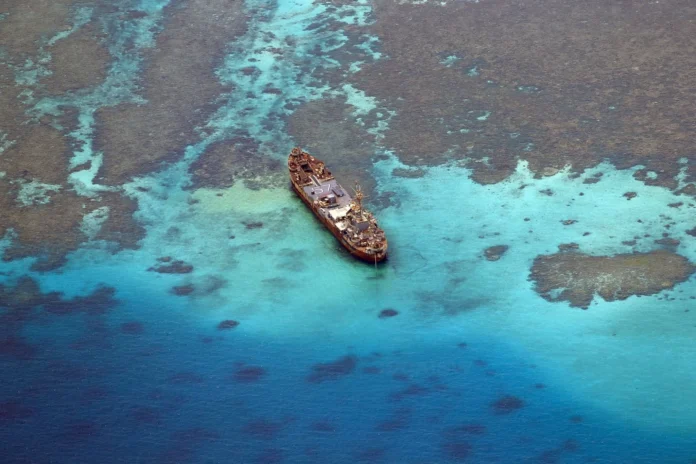SYDNEY, Australia — The head of the United States Indo-Pacific Command, Admiral John Aquilino, expressed deep apprehension on Tuesday regarding Beijing’s recent aggressive maneuvers in the disputed South China Sea, particularly in encounters involving Philippine vessels.
Speaking in Sydney, Admiral Aquilino highlighted recent incidents between Chinese and Philippine boats near the Second Thomas Shoal in the Spratly Islands. “I’m very concerned about what’s happening at the Second Thomas Shoal,” he remarked. “I’m very, very concerned about the direction it’s going.”
China has been striving to assert dominance over a significant portion of the southwest Pacific since the 1990s, leading to tense standoffs with multiple neighboring countries claiming various islands, atolls, reefs, and shoals in the region.
Recent weeks witnessed two collisions near the Second Thomas Shoal involving vessels from China and the Philippines, alongside Chinese ships using water cannons against Philippine boats. This area holds immense strategic importance as a resource-rich maritime crossroads crucial for regional trade.
As a treaty ally of the Philippines, the United States has been vocal in supporting the Southeast Asian nation against China’s actions. Admiral Aquilino criticized China’s “unilateral” actions as “dangerous, illegal, and destabilizing the region,” raising concerns about the extent of China’s ambitions in the area.
China designates the Second Thomas Shoal as Ren’ai Reef, claiming it falls within the controversial “nine-dash line” that outlines extensive Chinese control over much of the South China Sea. In 2016, an international tribunal invalidated Chinese historical claims over the territory and rebuked Beijing’s naval activities for encroaching on Philippine sovereignty. However, China has largely disregarded the ruling, leading to ongoing confrontations.
The situation underscores escalating tensions in the West Philippine Sea, prompting heightened international scrutiny and calls for diplomatic resolutions to avoid further destabilization in the region.




